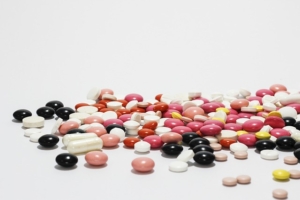 Superlatives, hanging comparisons, and other ‘no-nos’ of pharmaceutical advertising copywriting
Superlatives, hanging comparisons, and other ‘no-nos’ of pharmaceutical advertising copywriting
With consumer products you can talk superlatives:(“This stuff is the best there is, no question”). You can use hanging comparatives: (“Ours is so much better, superior to anyone’s else’s stuff). You can even lie or ignore a product’s harmful effects (“Our chips are the crispiest best. (But they’re so full of saturated fats they’ve been proven to cause heart attacks”). You can equate products with sexual, social and workplace success. Longevity, even. Not so in pharmaceutical advertising.
Pharmaceutical advertising should be legal, honest and decent
When writing medical copy, you cannot mislead, be dishonest, or use gratuitous imagery. Every claim you make has to be true and capable of being referenced (see next section). Association with success and youthfulness is out, gratuitous nudity likewise. But therein lies the creative challenge. Making something substantial out of the material you have is often extremely exhilarating and challenging, and once you know the rules, it can actually make the job easier.
 Referencing: making an art out of science
Referencing: making an art out of science
Claims about a drug must be backed up by studies that prove it to be true. Medical copywriters can’t make unsubstantiated claims, or the Regulatory bodies will get very cross and start issuing eight figure fines. In presenting data in medical communications such as Sales Aids, GP Mailers and other long-copy communications, medical copywriters must be able to substantiate any medical claims they make with references from clinical papers and studies. They also need to know how to find the ‘superscript’ command on their computer.

Don’t rely on what the last medical writer said
As a rule, rather than relying on what the last writer or agency (if indeed there was one) got into print, I always read through the clinical papers afresh, highlighting any relevant text and data, before making any medical claims in my copy. Experience has taught me that even if the marketing client passes my copy, someone in their medical department (generally the day of the launch or print deadline) will say: “Unless you tell me where this claim came from I will not sign it off, so there!”
Medical writing and familiarity with regulations and codes
An amount of familiarity with regulations and codes is a necessary prerequisite for our profession, but you can’t always expect a UK medical copywriter to be necessarily totally au courant with what governs pharmaceutical conduct in say Wurttemberg, or Upper Silesia.
About the writer:
Harry is an award-winning medical copywriter of many years standing. Following Creative Director positions at several leading UK healthcare ad agencies, he now devotes himself fulltime to freelance medical copywriting. As well as the UK, he has worked in the EU, and likes working directly with clients as communication tends to be immediate and more efficient, with fewer levels of approval.



